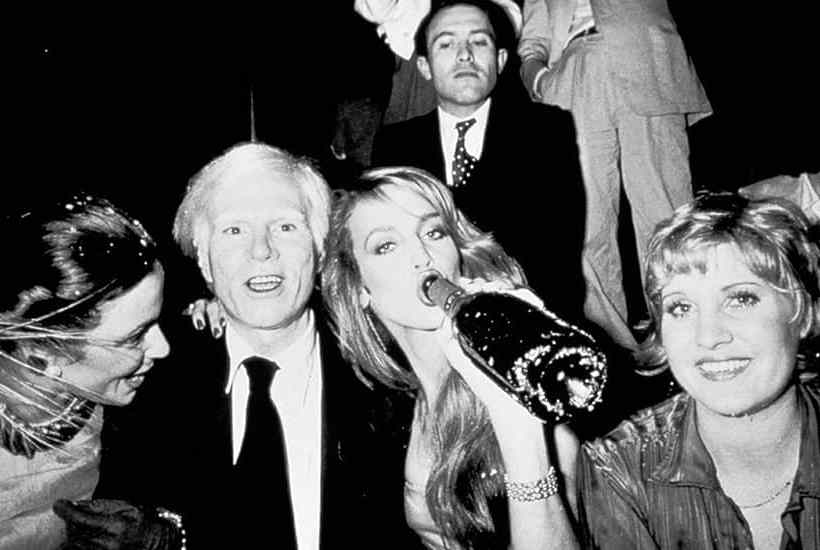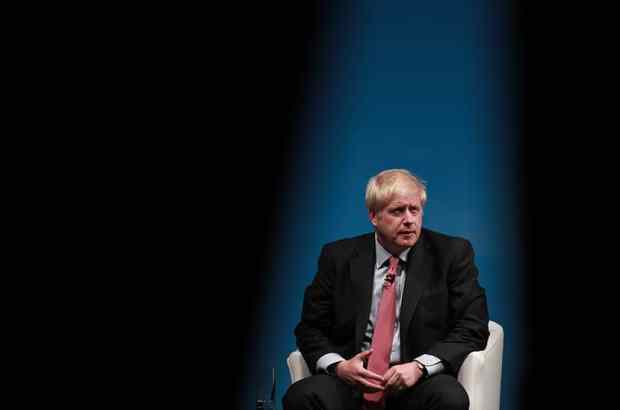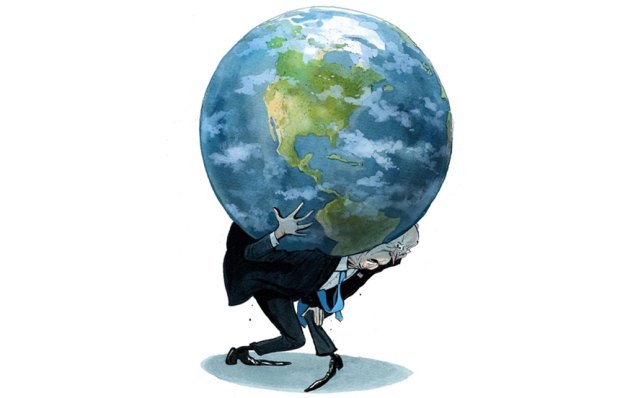How well-behaved have you been in the second year of Covid? I wouldn’t say I’ve been perfect but I haven’t been that bad. I’ve done most things the government has demanded of me. I’ve had both my Covid jabs. I’ve downloaded a vaccine passport, even though I hate the idea. I’ve squelched antibac gel on to my hands most times I’ve taken the Tube. I’ve shoved countless cotton swabs down my throat and up my nose. I’ve worn my mask.
We all did lots of this stuff in the hope that life would get back to normal, whatever that means. But the threat of Christmas being cancelled hangs over us once more. According to the headlines, the Prime Minister is ‘battling to save Christmas from Omicron’, this year’s supervillain. It’s Last Christmas, the sequel — only this time the virus is even more contagious, and can only be defeated if we get our third, fourth, fifth booster jabs. Boris has promised us he is ‘absolutely confident’ that this Christmas is going to be better than last year’s. For his sake as much as ours, I hope he’s right.
It’s become obvious, though, that the government has realised people like being told they can’t go out. The polls suggest that people warm to the government when it threatens another lockdown. Work is dreary and social life can be exhausting. Stay at home? With pleasure, Prime Minister.
As we brace ourselves for another winter of hunkering down and hibernation, I find myself feeling like an apostate. I have started to resent and mistrust anyone who is evangelical about time spent indoors. I’m suspicious of home-comfort obsessives, all of them itching for another lockdown and that nice, nostalgic sense of selfless idleness that defined 2020.
‘Stay at home’ was already a popular lifestyle choice prior to the pandemic. In fact, stay-at-homers had built up an entire culture around their quasi religion. I know all this because, before the pandemic hit, I too was a committed stay-at-homer. Home meant everything. I would manically fill mine with beautiful blankets and expensive candles. My favourite plants were the ones I kept indoors. Happiness was to be found in a pair of cashmere socks. If you turned down the lights and squinted hard enough, you could convince yourself that you were living in a cute cottage in the snowy countryside rather than a dinky flat in Zone Two.
Then along came ‘hygge’ and staying at home hit the big time. You might remember hygge (pronounced hoo-gah). It was a cultural phenomenon of 2016. Hygge, which is both a noun and a verb, is the Danish term for the mythical pursuit of homeliness — and it was only pipped to the post for the coveted title of ‘Word of the year’ by another 2016 phenomenon also focused on a mythical pursuit of homeliness: Brexit.
For publishers, hygge meant cold, hard cash. The Little Book of Hygge by Meik Wiking — who hailed from the spurious-sounding ‘Happiness Research Institute’ in Copenhagen — sold more than a million copies worldwide, which must have made Mr Wiking very happy indeed. His book included a hygge manifesto, outlining a ten-point action plan that implored followers to focus on ‘presence’, ‘comfort’ and ‘equality’ in order to make their lives more hygge.
What the rise of hygge spoke most to, though, was a belief in the benefits of staying at home as opposed to venturing out. You couldn’t hygge properly if you were too far away from your kettle. Thanks to social media, staying in became a way of showing off: you could stylise and photograph your interior life and enjoy the rewarding likes on Instagram, without leaving your velvet-covered sofa. Fast-forward to early 2020 and the stay-at-homers suddenly found themselves gloriously vindicated. The pandemic led to hygge becoming state-sanctioned. I should have loved it.
But I don’t. This Christmas, I want to go out and be merry. The government says we shouldn’t go to work but we can party — and I intend to do just that. I hope to find myself in crowded, hot rooms, full of friends drinking warm champagne and eating cocktail sausages. I want drunken, amusing, car-crash conversations with colleagues at the Christmas party which we then regret the next day. I want to find myself in pubs festooned with tinsel, toasting people I don’t know. I want carols in packed churches with everyone singing with all the might of their lungs. I want to see my family on Christmas Day.
I know it’s not Covid-secure to do all this. It’s safer to stay at home, and even suggesting such mirth is fairly sacrilegious. The hyggers rule and the government knows it. As evidence for this theory, I present this year’s global scented-candles market report, which predicts that the worldwide market for smelly candles will grow from $553.5 million in 2020 to $690.8 million by 2028. The light at the end of the tunnel may just be a Diptyque candle glimmering in the dark.
All this ominous domesticity has made me want to rebel. I’m not staying at home. This year, I’m going out. Because it’s not up to the Prime Minister to save Christmas; it’s up to us.
Got something to add? Join the discussion and comment below.
Get 10 issues for just $10
Subscribe to The Spectator Australia today for the next 10 magazine issues, plus full online access, for just $10.
You might disagree with half of it, but you’ll enjoy reading all of it. Try your first month for free, then just $2 a week for the remainder of your first year.















Comments
Don't miss out
Join the conversation with other Spectator Australia readers. Subscribe to leave a comment.
SUBSCRIBEAlready a subscriber? Log in